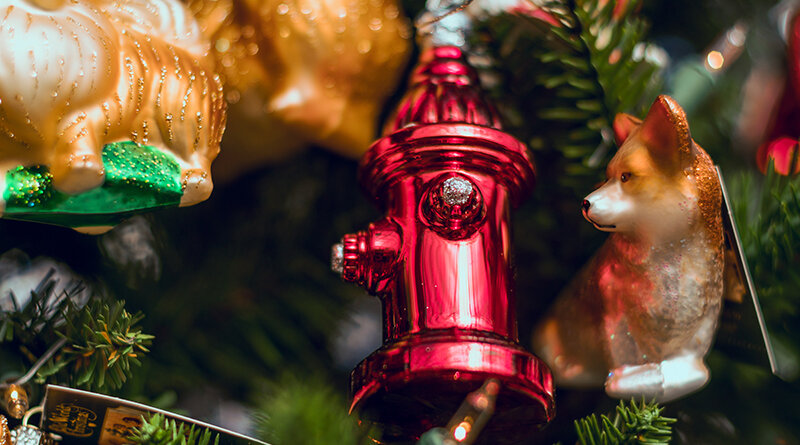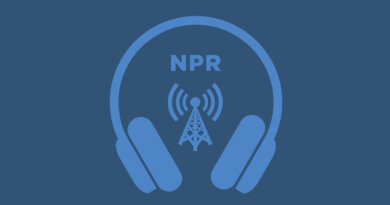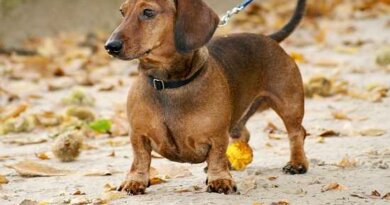Have a Dog-Safe Holiday | The Bark
Without going all Ebenezer Scrooge, we offer this safety reminder that, as much fun as the holidays can be, they’re a potential minefield for dogs and cats. Keeping the following in mind will go a long way toward ensuring that a good time is had by all.
Winter’s festive season, with its excitement, sparkly decorations and delicious food, is the ultimate danger time for dogs. Vet emergencies go up by around 40 percent, and many holiday celebrations come to an abrupt end when dogs fall sick. Avoid being part of the uptick and enjoy the season by being mindful of the following holiday dog safety tips.
1. Christmas tree
Dogs who eat natural conifer needles, and even artificial ones, can develop vomiting, stomach pain and diarrhea. The needles can penetrate paws, stomach or intestines, resulting in a major emergency. Don’t leave your dog alone with your tree, vacuum up needles daily, water a live tree well (and don’t use preservatives in the water) and put a dog-proof fence around it.
2. Glass baubles
These ornaments are beautiful, but they’re easily broken, with potentially disastrous outcomes for dogs if the shards perforate their pads, stomachs or intestines. Use unbreakable baubles, particularly at lower levels, and make sure any fragile ornaments are well-secured above dog-level.
3. Tinsel and ribbons
Dogs (and cats) can mistake sparkling tinsel and ribbons for toys, but the consequences of ingesting them are anything but fun. They can create obstructions in the intestines, with severe consequences. Definitely skip the tinsel and the curling ribbon, replacing them with dog-friendlier options, such as paper chains or wide, clothlike ribbon.
GET THE BARK IN YOUR INBOX!
Sign up for our newsletter and stay in the know.
4. Decorative lights and batteries
Hanukkah lights and fairy lights pose a big danger for dogs. If they chew them, they’re vulnerable to electric shock, burns and even electrocution. Chewed batteries can burn a dog’s mouth and esophagus and can also cause heavy-metal poisoning if eaten. Safely conceal and cover all wires so they can’t be chewed. Keep batteries out of your dog’s reach.
5. Edible decorations
Dogs who eat salt-dough ornaments may develop salt toxicosis, with vomiting, diarrhea and seizures, and potentially fatal outcomes. Display them out of dogs’ reach, and preferably, not on the tree. Popcorn strings are also a threat. Many dogs find popcorn hard to resist and in their enthusiasm, will ingest the obstruction-creating string as well. Best to pass on this attractive nuisance!
6. Candles
Dogs are curious about new things, and in investigating candles, not only burn their noses, paws or fur, they can also set the house on fire by knocking them over. Display candles of all types out of reach, don’t use them on trees, never leave them unattended and always keep an eye on your dog when they’re lit. When in doubt, opt for dog safe LED candles. Scented candles can be a problem for dogs with allergies or other sensitivities; if your dog is one of them, either don’t use scented candles or burn them less often and for a short duration.
7. Wrapping paper and silica gel
Ingested wrapping paper—indeed, enough of any kind of paper—can potentially result in a GI obstruction, as can silica gel, which is found in packaging materials. Promptly bag up or remove all wrapping paper and packaging materials and dispose of them in a secure trash bin.
8. Chocolate
Chocolate contains theobromine, which is poisonous for dogs and can be fatal, particularly for smaller dogs. Even a Lab-sized dog can be seriously sickened if he eats enough of it; just 26.5 oz. of milk chocolate will cause seizure in a bigger dog, and much less is required to put a small dog in jeopardy. Don’t put chocolate presents or treats on or under the tree. Any kind of chocolate, or food containing chocolate, should always be out of the reach of dogs.
9. Cooked bones
Cooked bones, especially poultry bones, are very brittle and can easily splinter into small pieces that penetrate the esophagus, stomach and intestines, resulting in a life-threatening emergency for your dog. Keep all meat items out of reach while cooking and during meals, and throw away remaining bones in a secure bin outside.
10. Fatty and spicy food
Rich, fatty and spicy foods not only upset dogs’ stomachs, they also can provoke an inflammation of the pancreas, which is a painful and serious condition for your dog. Keep these foods out of reach and don’t share them from the table.
11. Nuts, onions, blue cheese
Nuts, particularly macadamia nuts, can lead to vomiting, weakness and tremors. Allium species (onions, shallots, garlic, chives, and leeks) are also toxic and can induce severe blood disorders and anemia. Blue cheese contains the mycotoxin roquefortine C, which dogs are sensitive to. None of these items, or foods that contain them, should be fed to dogs.
12. Sweeteners
Artificial sweeteners like xylitol are often used in “sugar-free” cookies, cakes, candies (including candy canes), gums, and other food. If eaten by dogs, they can lead to hypoglycemia, liver failure, blood clotting and seizures. Even the smallest quantities shouldn’t be given. Instead, spoil your dog with special festive dog treats!
13. Alcohol
For dogs, alcohol is a very potent toxin that can induce vomiting, diarrhea, breathing difficulties, tremors and even coma, with fatal outcomes. Clean up spilled alcohol immediately, before your dog can lick it.
14. Plants
Poinsettia, mistletoe, holly and ivy are mildly to moderately toxic for dogs, causing drooling, vomiting, diarrhea and stomach upset. Keep them out of reach.
15. Potpourri
Potpourri products and essential oils—including oil of cinnamon, citrus, pennyroyal, peppermint, pine, sweet birch, tea tree, wintergreen and ylang ylang—are poisonous to dogs, causing serious stomach and intestinal problems. Make sure to keep them away from your dog.
Following these holiday safety guidelines for dogs can help you enjoy an incident-free holiday season with your furry friends!



